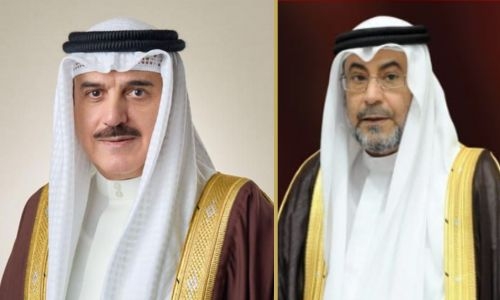Violent offenders not ‘prisoners of conscience’
TDT | Manama
The Daily Tribune – www.newsofbahrain.com
Individuals who have been convicted of crimes related to violence, terrorism, and communication with hostile parties should not be labelled as ‘prisoners of conscience’.
This was emphasised by the Minister for Shura Council and House of Representatives Affairs, His Excellency Ghanim Al Buainain, in a closing speech he delivered yesterday marking the end of the last session of the second term of parliament.
Al Buainain was speaking in response to the calls made by certain parliament members on 30 April to extend His Majesty King Hamad bin Isa Al Hamad’s royal pardon on Eid Al-Fitr to release all prisoners, including those they categorised as prisoners of conscience.
The Minister said that such calls directly contradict the principles of criminal justice in the Kingdom of Bahrain and impinge upon the authority of the judiciary.
He asserted: “All inmates serving sentences at Reform and Rehabilitation Centres have been convicted of illegitimate offences, completely unrelated to the exercise of freedom of expression and freedom of speech.
“Defendants and convicts escaping the clutches of justice for serious crimes must not be described as exiled.” Furthermore, he condemned characterising convicts as political prisoners, as it undermines the principle of separation of powers and demonstrates an explicit disregard for the rule of law.”
Separation of powers
Echoing the same sentiment, the Council of Representatives Speaker, H.E. Ahmed bin Salman Al Musallam, said: “The Bahraini Constitution enshrines the principle of separation of powers as a fundamental pillar of the government system in Bahrain.
It also states that no authority has jurisdiction over the judge’s rulings.
“What occurred during the session on 30 April crossed boundaries by delving into matters within the jurisdiction of the judicial authority, describing the convicts as if they were not deserving of punishment in the first place and suggesting that their actions were primarily exercises of freedom of expression.”
Related Posts

